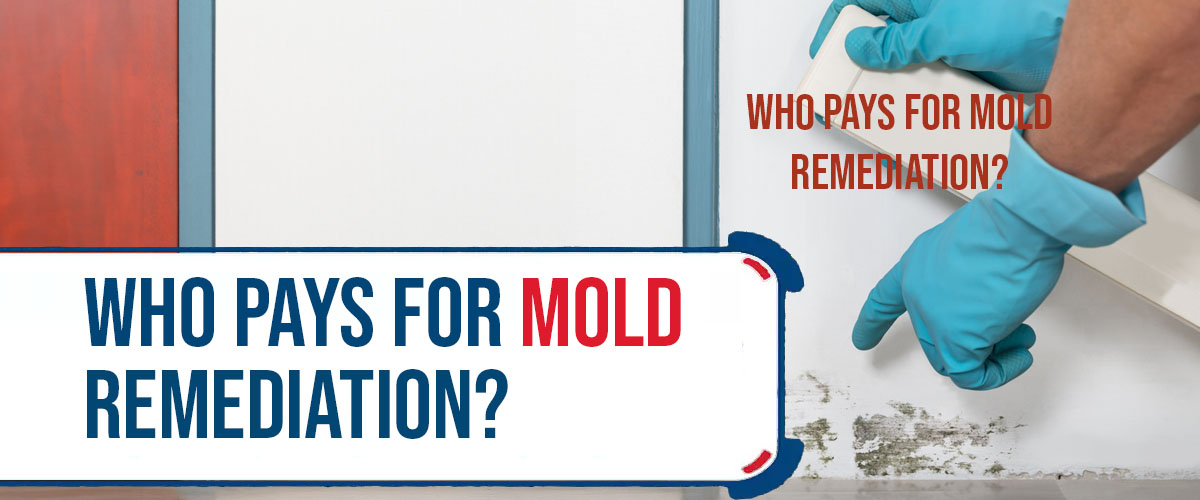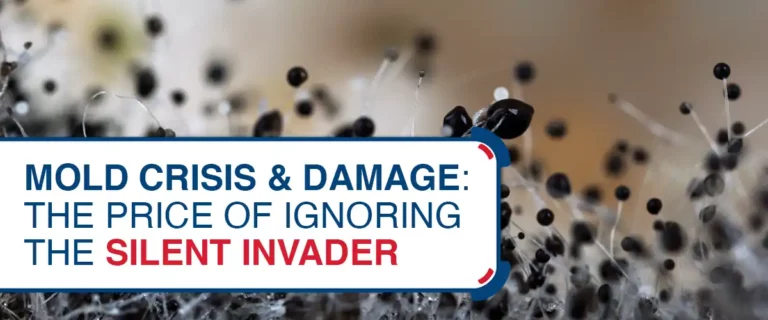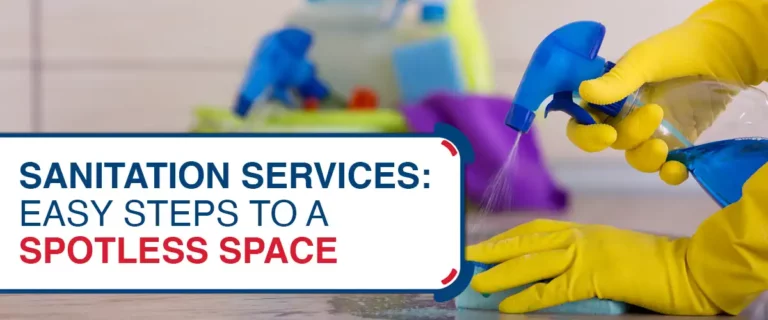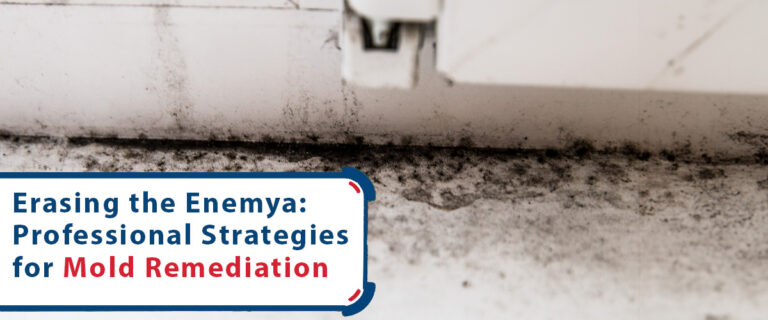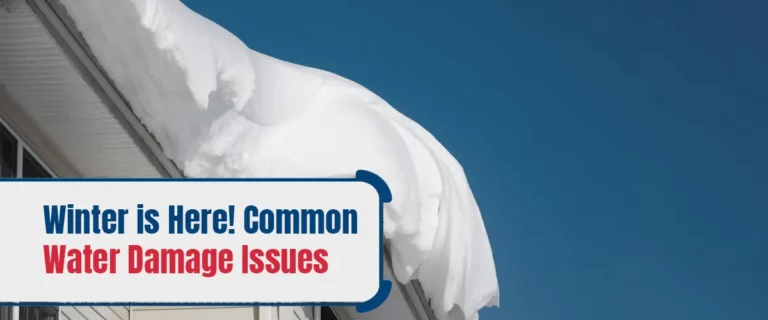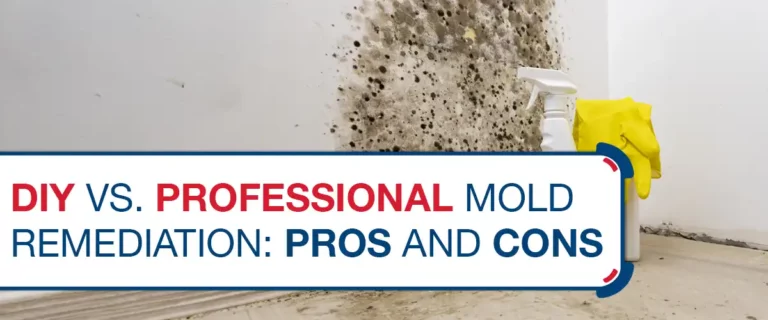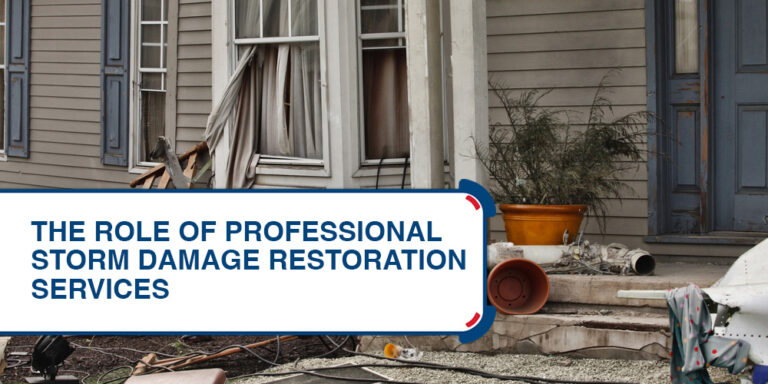Mold, an insidious intruder that can wreak havoc on health and property, often goes unnoticed until it’s too late. While the mere mention of mold can send shivers down the spines of homeowners, tenants, and property owners, understanding the responsibility for mold remediation is crucial in navigating this dilemma.
Moreover, this comprehensive article will delve into mold remediation, clear up common misconceptions, and shed light on who foots the bill for this often necessary but dreaded task.
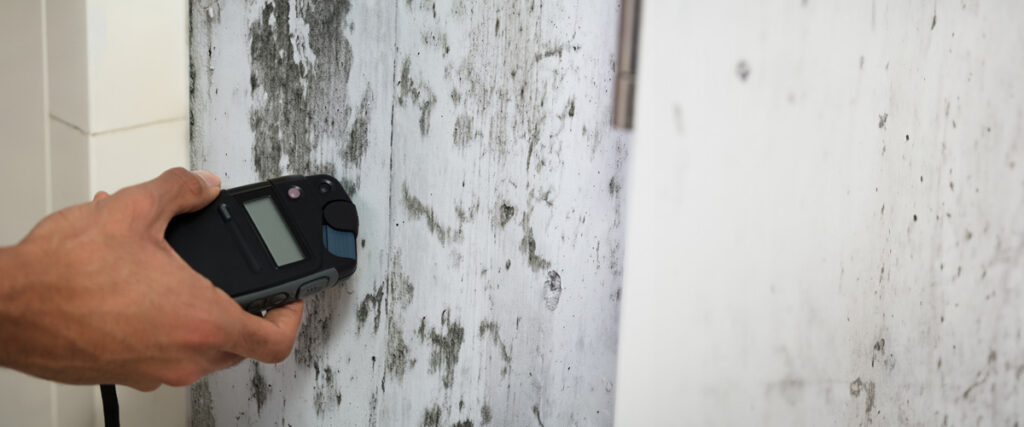
What is Mold Remediation?
Before diving into who pays for mold remediation, let’s grasp the nature of the beast we’re dealing with. Mold is a fungus that thrives in wet, moist, and humid environments and is notorious for causing health issues, property damage, and even structural deterioration. When left unchecked, mold can lead to:
- respiratory problems
- allergies
- health concerns.
Also, mold spores are microscopic and can rapidly spread through the air during remediation, potentially causing further contamination.
Mold remediation in Kansas City systematically identifies, contains, and eliminates mold growth within a given space. This complex process requires careful assessment, thorough cleaning, and often removing affected materials. It’s not a task for the faint-hearted and generally necessitates professional assistance.
Furthermore, the complexity of mold remediation calls for professionals with the expertise and equipment to tackle it effectively. Professionals ensure they do the job right the first time, minimizing the risk of recurrence.
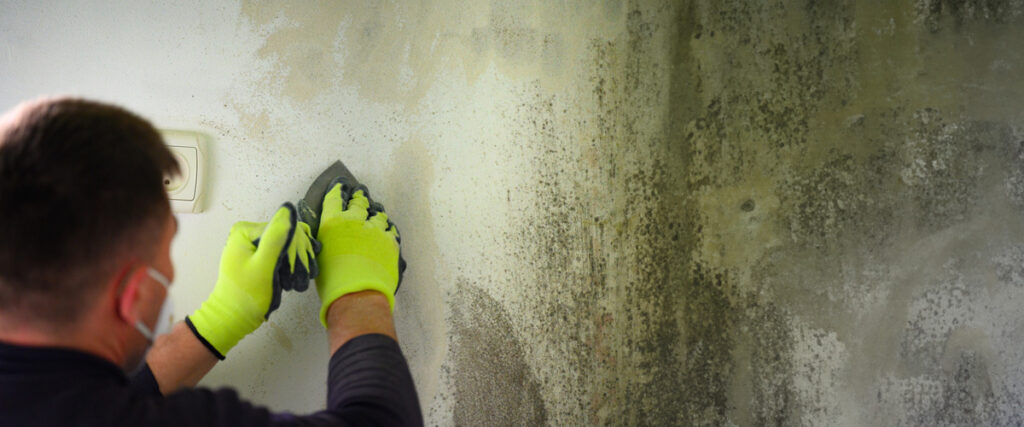
Who Pays for Mold Remediation?
Depending on many different things, figuring out who’s on the hook for covering the mold removal costs can get pretty tricky. So, here are the main factors that come into play when deciding who’s shelling out the cash for mold remediation:

A. Homeowners’ Insurance Coverage
When mold rears its ugly head, homeowners often turn to their insurance policies for financial relief. However, not all policies cover mold damage and remediation. It is crucial to scrutinize your insurance policy to determine whether mold-related issues fall within its purview.
Some insurance policies may offer limited coverage for mold remediation if it results from covered incidents, such as a burst pipe or storm damage. Others may have specific mold endorsements that provide more comprehensive coverage. Understanding your policy’s nuances is critical to avoiding unexpected out-of-pocket expenses.
While insurance can be a financial lifeline, knowing its limitations and exclusions is vital. Policies may have caps on mold-related claims or exclude coverage for certain types of mold. Being well-informed about your range can help you navigate the often tricky waters of mold remediation expenses.

B. Landlord and Tenant Obligations
Responsibility for mold remediation typically hinges on the terms outlined in the rental agreement in rental scenarios. These agreements should explicitly detail the roles and obligations of landlords and tenants regarding mold issues.
Landlords must provide habitable living conditions. If mold problems result from landlord negligence, such as failure to address leaks or ventilation issues, the responsibility often falls on the landlord to remediate the mold and repair the underlying problem.
Tenants also play a role in mold prevention and early detection. Proper ventilation, promptly reporting leaks, and practicing good housekeeping can help prevent mold growth. When tenants contribute to mold issues through neglect, their responsibility in the remediation process may increase.

C. Commercial Property Owners
Commercial property leases typically outline the responsibilities of both property owners and tenants. Similar to residential agreements, these documents specify who is responsible for mold remediation in case of an outbreak. As with homeowners, commercial property owners must understand their policies’ terms and limitations.
Moreover, disputes over mold remediation costs can be more complex in this area. Contracts between property owners and tenants may dictate how expenses are allocated. When disagreements arise, legal resolution may be necessary.

D. Government Programs and Assistance
In some instances, government assistance programs may be available to help with mold remediation costs, especially in areas affected by natural disasters. These programs are typically designed to aid low-income individuals and communities facing mold issues due to circumstances beyond their control.
Government programs often have strict eligibility criteria and limited funding. Applicants must meet specific income thresholds and demonstrate the severity of their mold problem. Understanding the requirements and limitations of these programs is crucial when seeking financial assistance.
In addition to government programs, non-profit organizations, and local initiatives may provide financial support for mold remediation. Exploring these avenues can be beneficial for those in need of assistance.

Factors Influencing Mold Remediation Costs
Several factors come into play when it comes to the expenses tied to mold remediation. These elements play a significant role in determining the overall cost of addressing a mold problem. Factors such as the extent of the mold infestation, the type of mold present, the location of the mold growth, and the materials affected all contribute to the complexity of the remediation process and, consequently, the associated costs. Here are several key factors that influence the cost of mold remediation:
A. Extent and Severity of Mold Contamination
The extent and severity of mold contamination are primary factors influencing remediation costs. Small, isolated outbreaks are generally less expensive than extensive infestations that have spread throughout a property.
B. Type of Property and Its Structure
The type of property and its structure also impact costs. Mold remediation in a single-family home may differ significantly from that in a large commercial building or an apartment complex. Structural intricacies can complicate the process and affect pricing.
C. Accessibility Challenges in the Remediation Process
The ease of access to the affected areas can significantly impact costs. Mold hidden within walls, ceilings, or crawlspaces may require extensive efforts to reach and remediate, driving up expenses.
D. Geographic Location and Local Regulations
Geographic location matters as well. Regions with higher humidity levels or a history of flooding may experience more frequent and severe mold issues. Additionally, local regulations and permitting requirements can influence the cost and timeline of mold remediation projects.
E. Additional Factors Affecting Cost Estimation
Other factors, such as the type of mold, the presence of pre-existing conditions, and the need for temporary housing during remediation, can all contribute to the overall cost estimation for mold remediation.
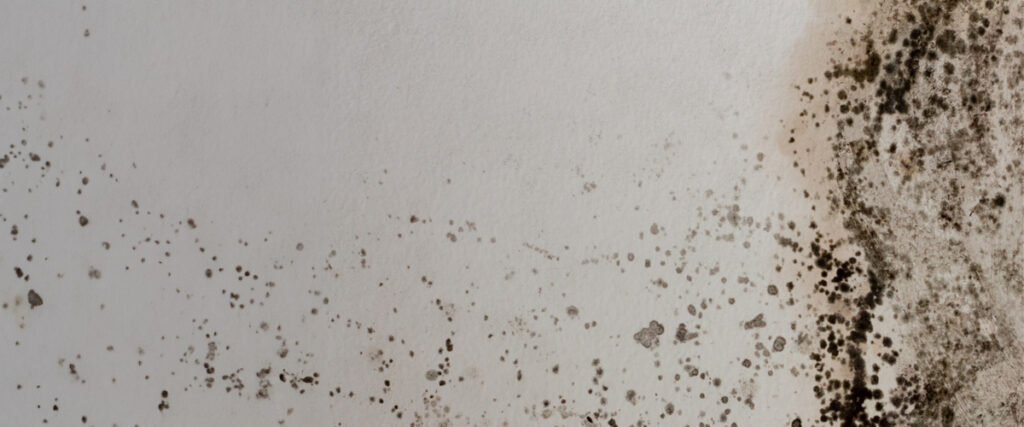
Preventative Measures to Avoid Mold Remediation Costs
To avoid mold remediation costs, it’s crucial to maintain low indoor humidity, promptly fix leaks, and keep your home clean and dry. Proper ventilation, dehumidifiers, and regular inspections can help prevent mold growth, saving you from costly remediation expenses.
The best way to avoid the burden of mold remediation costs is through prevention and early detection. Tips include:
- maintaining proper ventilation
- promptly fixing leaks
- keeping humidity levels in check
Also, regular property maintenance and inspections can help identify and address the issues before they escalate into costly mold problems. Timely repairs and addressing water intrusion can save you both money and headaches.
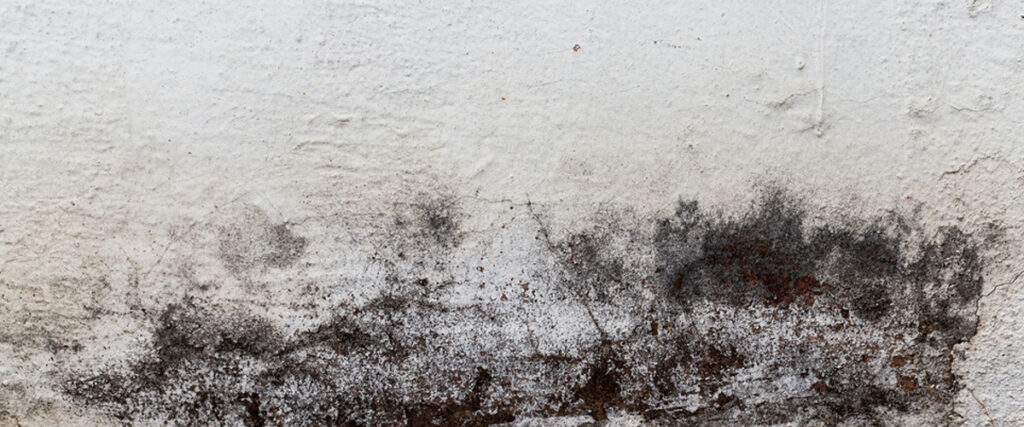
Cracking the Mold Payment Puzzle: Who’s Paying?
Understanding the responsibility for mold remediation is paramount for homeowners, tenants, and property owners. Whether you are covered by insurance, bound by a rental agreement, or facing mold in a commercial property, being educated enough and knowing your rights and obligations can make a world of difference.
Lastly, we encourage everyone to take proactive measures to prevent mold issues. By staying informed and implementing preventative strategies, you can safeguard your property and reduce the likelihood of ever having to answer the question, “Who pays for mold remediation?” Mold may be a formidable adversary, but with knowledge and foresight, you can keep it at bay and your wallet intact.
Don’t wait for mold to become an expensive problem—be proactive in protecting your health and property.
Resources
- CDC. Mold. Retrieved from https://www.cdc.gov/mold/.
- National Institute of Environmental Health Sciences. Mold. Retrieved from https://www.niehs.nih.gov/health/topics/agents/mold/index.cfm
- CDC. Basic Facts about Mold and Dampness. Retrieved from https://www.cdc.gov/mold/faqs.htm
- United States Environmental Protection Agency. A Brief Guide to Mold, Moisture, and Your Home. Retrieved from https://www.epa.gov/mold/brief-guide-mold-moisture-and-your-home


